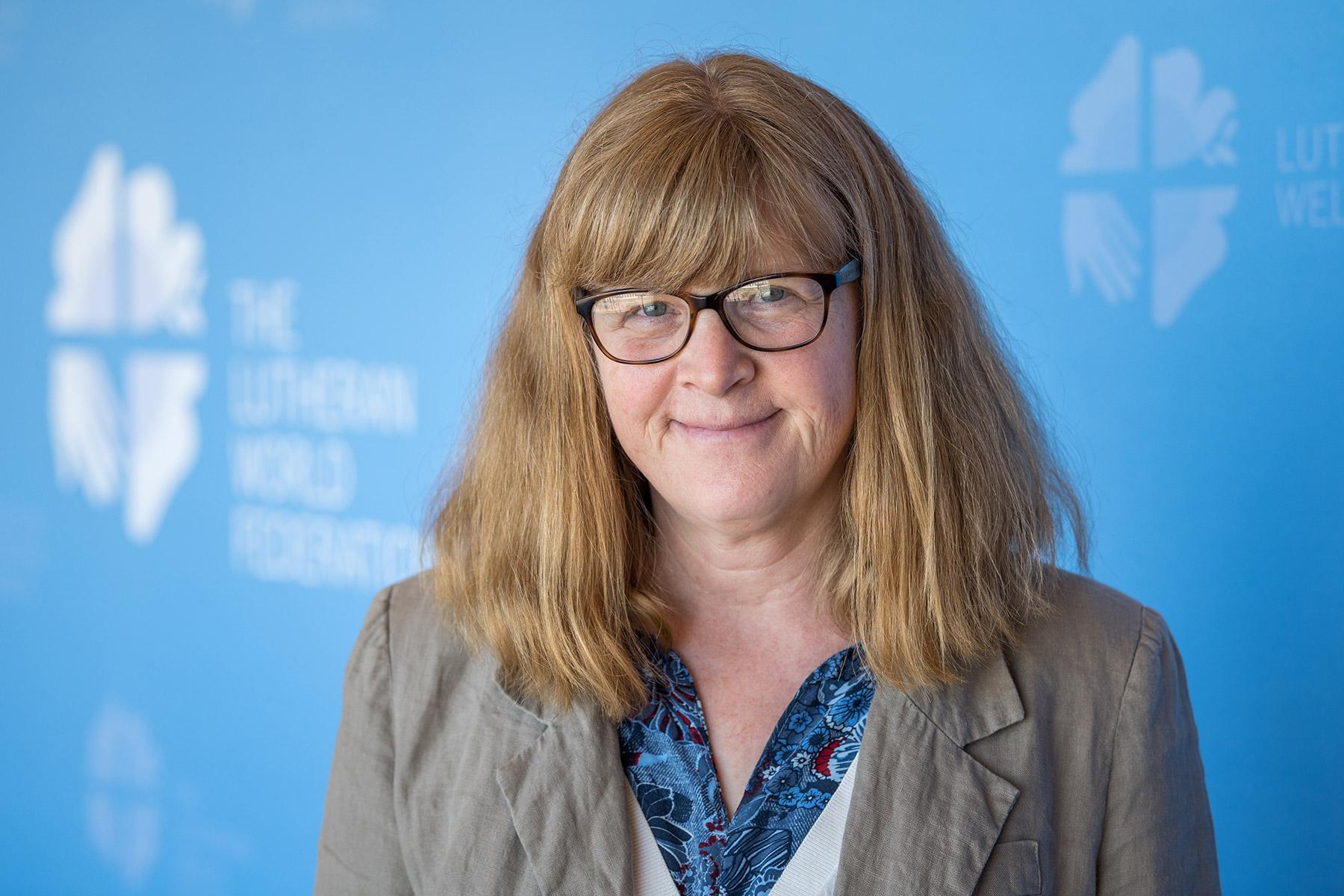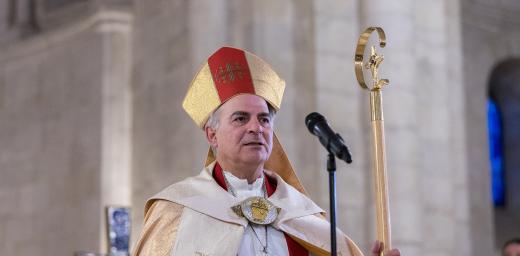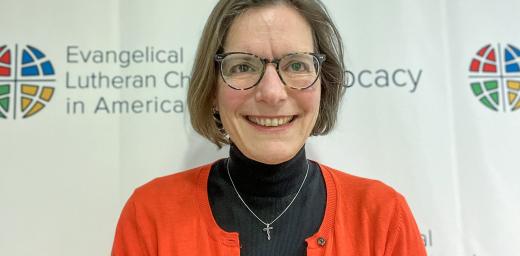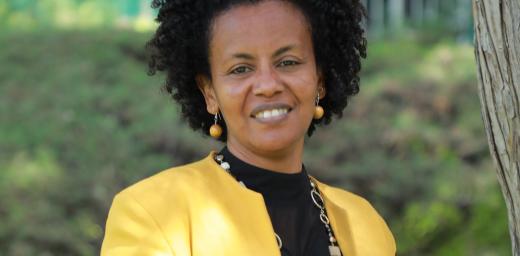Voices from the Communion: Rev. Katherine Gohm from London, Ontario
(LWI) - A “lifelong Lutheran,” a “present-day pilgrim” and - since the Lutheran World Federation (LWF) Assembly in Krakow - vice-president for the communion of churches’ North America region. Meet Katherine Gohm, pastor at Redeemer Lutheran Church in London, Ontario and former director of public policy and service ministries for the Eastern Synod of her Evangelical Lutheran Church in Canada (ELCIC).
A mother of two young adults, she cares deeply about uplifting the voices of youth in the church. She is also passionate about the struggle to eliminate violence against women, including against indigenous women who experience higher levels of gender-based violence. Working on decolonization and reconciliation with the First Nations, as well as the Inuit and Métis people, is a key area for the church in her country.
Together with her own congregation, Gohm is working with ecumenical partners and other agencies to support local homeless people, including those suffering from addiction and mental health challenges. Like many parishes across Canada, her congregation has an ageing population that is searching for ways of remaining relevant and sustainable for the coming years.
Could you start by telling us something about yourself and your family background?
I am the daughter of German immigrant parents who met and married in Montreal, Québec. Together with my three older brothers, I was raised a Lutheran, although during my late adolescence and student years I explored other faith traditions too. I completed a BA in sociology and had started a degree in social work when I decided to go to seminary instead. I completed my Master of Divinity at Waterloo Lutheran Seminary, now called Martin Luther University College.
So, I’m a lifelong Lutheran and my calling is to full time parish ministry. I also love walking and am proud to say that, five years ago, a colleague and I walked the whole of the ‘Camino’ from Saint-Jean-Pied-de-Port in France to Santiago de Compostela in Spain. I love to walk, it is my prayer time, and that pilgrimage enabled me to make some key life decisions, as well as reaffirming by pastoral ministry. I would love to do it again, or perhaps one of the other pilgrim routes across the region.
Can you share something about the congregation you’re serving at the moment?
Redeemer is a lovely, active parish and we have been going through a revisioning process over the past few years, trying to figure out the best way forward. The ELCIC is a relatively small church and, in my own context, we are an ageing population with limited human resources, so we are looking for ways of moving out into our community.
We are partnering with local agencies to support the homeless who live in ten communities along the river. There is a homeless crisis across the country and we want to support those needing wrap-around care for issues including addictions and mental health problems. We organize collections for food banks and we also support a local women’s shelter which is very close to our church.
Another priority for the ELCIC is working with the indigenous peoples of Canada, isn’t it?
Yes, we have to do a lot of listening and learning as we work on reconciliation and healing. We have had an indigenous leader speak to our congregation and we have taken part, with a local ecumenical organization, in what we call a Blanket Exercise that explores the history of colonization in Canada, showing how indigenous people were progressively squeezed out through land grabbing, disease and conflict.
I also took a group of our young people to Ottawa to do a Blanket Exercise in front of Parliament. It is vital that we learn and listen to what the Indigenous peoples are saying and what they are asking of us.
How did you first become connected to the work of the LWF?
When I was working as director of public policy and service ministries for the Eastern Synod, I was asked to replace Bishop Cindy Halmarson as an advisor to the LWF Council. That was back in 2015 and I went onto to serve as a delegate at the Assembly in Namibia two years later.
I have got to know more about the governance and work of the LWF ever since then and I was honored to serve on the planning committee for the Krakow Assembly. I always give presentations about the LWF to my church, stressing that we are a part of the global communion and we have to accomplish the work together. Our national Bishop Susan Johnson has also done a tremendous job in letting people know more about the LWF.
Finally, as one of the seven new vice presidents, what are your hopes for the coming years?
Our task is to listen to the voices from the region and bring those concerns to the LWF. There are many communalities, but there are also our diversities and we need to bring them too. Certainly, the work of indigenous reconciliation and decolonization is a big piece of what we are moving towards in North America. Gender justice is another important issue in our churches and in society as we know how gender-based violence increased during what has been called the ‘shadow pandemic’.
Also, the work for intergenerational justice is key as we must uplift the voices of our young people. They are committed and faithful, they work hard to combat the climate emergency and to keep the gospel alive and relevant. It is important for my two boys, aged 22 and 23, and I am proud of our Synod which has just hired my youngest son to the role of public policy director. It is vital for all our young people that we support their work and entrust them with leadership positions.
The Lutheran World Federation is a global body that shares the work and love of Christ in the world. In this series, we profile church leaders and staff as they discuss topical issues and set out ideas for building peace and justice in the world, ensuring the churches and communion grow in witness and strength.






